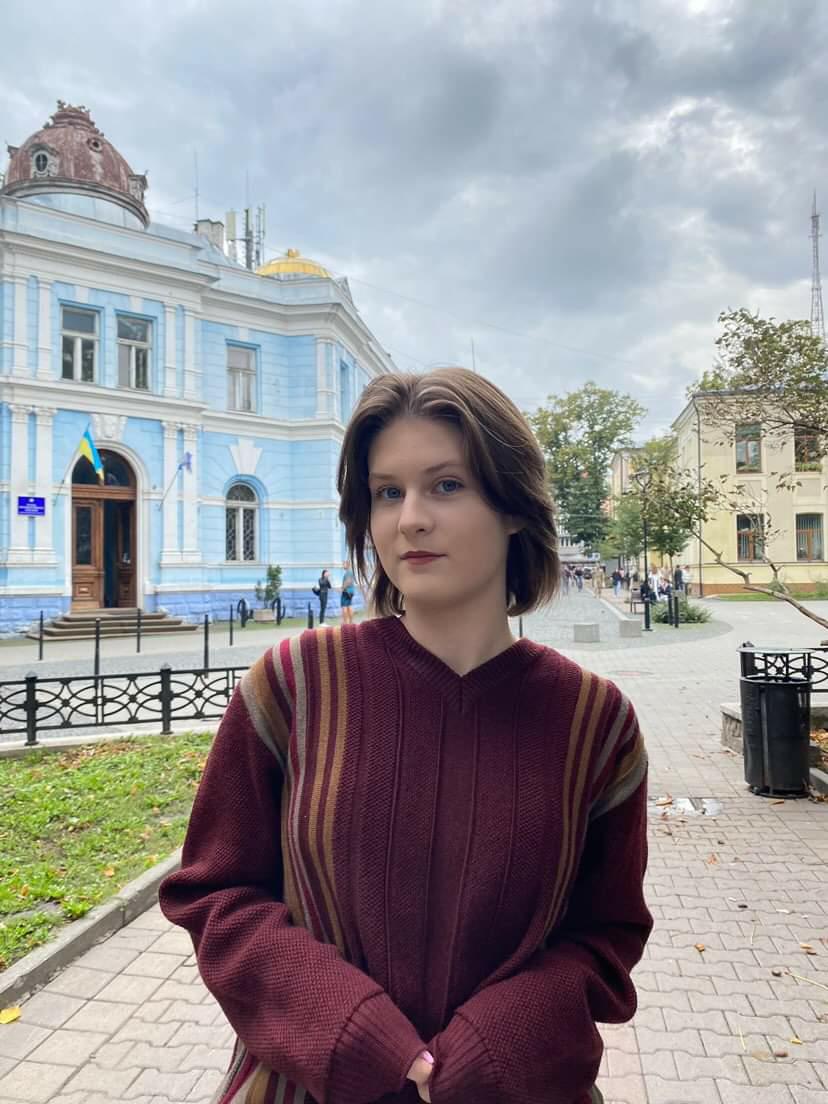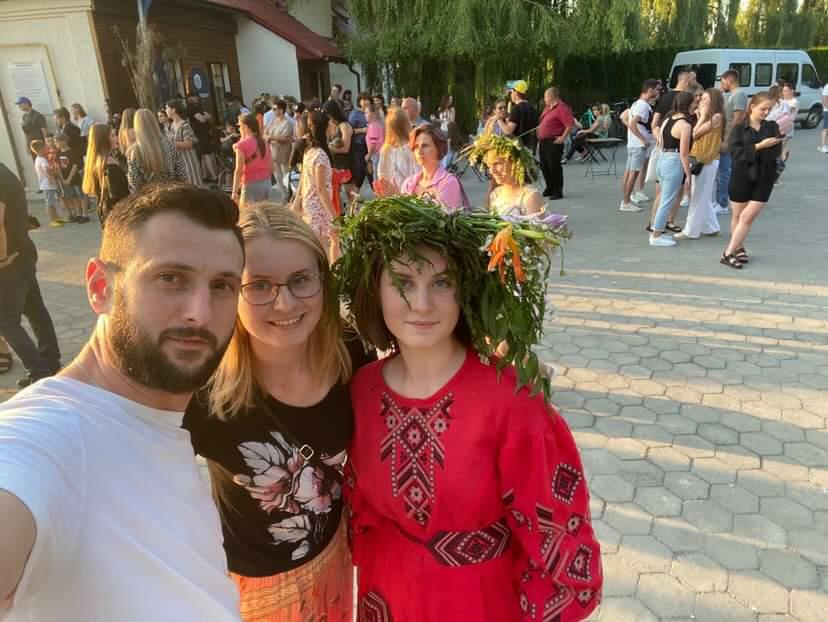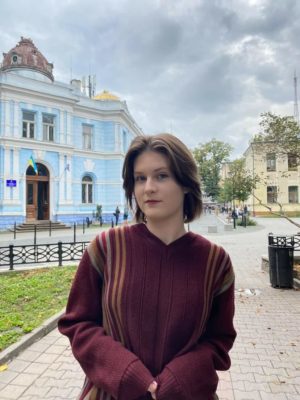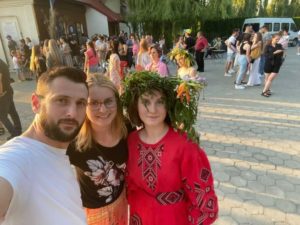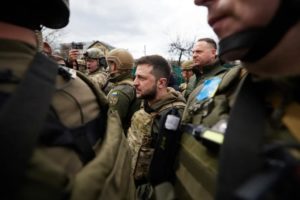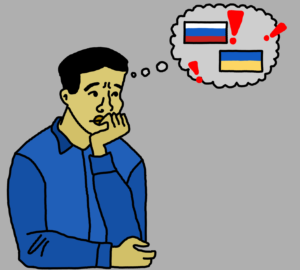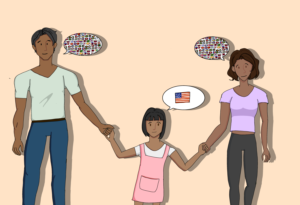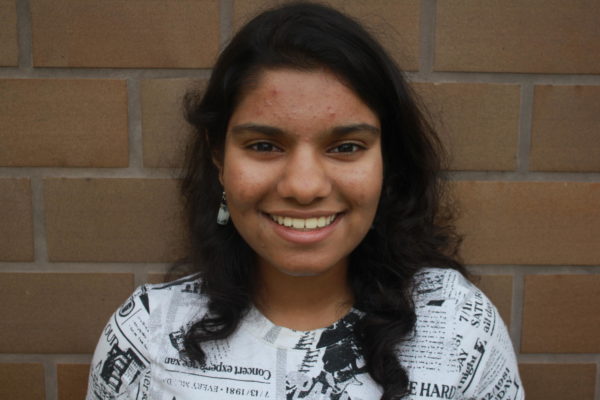No matter what the war throws her way, Nataliya Khrapchynska pushes through
January 31, 2023
Feb. 24 will mark the one-year anniversary of the current most important European conflict: Russia’s invasion of Ukraine. Over the last year, Ukraine has seen devastating drone and missile strikes, destructive tanks and an unfathomable number of deaths.
An ocean apart, we Americans learn about the crisis on the news. We get statistics, video footage and reports. Sometimes it can be difficult to empathize with Ukrainians, when we have never experienced what they are going through. It is difficult to feel something for the flashing numbers or the capitalized headlines sweeping across the TV screen.
But recently, I got the chance to talk to someone who changed this mindset. She is just like me. Both of us are just 15-year-old girls who listen to Lana Del Rey. We play the same sports and eat the same foods. So when I consider the vast differences between the safe suburb I live in and the burning airport near her apartment, my serene 2022 and her year spent constantly relocating, I realize how monumentally lucky I am, just to be living in California.
I met Nataliya last summer through the ENGin program, where I would teach her English every Saturday night. Although I am the one teaching her, Nataliya has taught me a lot in return.
The invasion of Ukraine was made official on Feb. 24, 2022. To many people, the outbreak of such a violent conflict was a shock. Ukraine, however, expected this.
“For three or four months before the war has started, all the news was like ‘Just be safe. The war can start at every moment,’” Khrapchynska said.
Though the town was anticipating the attack, Khrapchynska still remembers the shock of waking up at 6 a.m. to her parents telling her they had to leave. She recalls seeing missiles and smoke from the airport in her town.
Following the news, Khrapchynska’s father headed to the local gas station. She and her mother started packing their things and contemplating moving to the basement, unsure what to do in the situation. They watched news videos of Russian military tanks entering their region.
“After that, I just feel shocked for two days. I can’t feel something,” Khrapchynska said.
Khrapchynska’s family lives in an apartment in Ivano-Frankivsk, a city close to the Romanian border. Like many other families in Ukraine, Khrapchynska’s family considered moving to another country. Their top choice was Germany, since her maternal uncle had a job there. Five days into the war, Khrapchynska’s aunt decided to flee there.
Despite the safety and security Germany had to offer, the family chose to stay for multiple reasons. If they had fled to Germany, Khrapchynska’s father would have been left behind, due to the Ukrainian draft.
In addition to this, Khrapchynska and her family do not know German. While their stay in Germany would offer security, it would be uncomfortable at best. Therefore, the Khrapchynskas decided to stay in Ukraine.
Since they could not flee, the family knew they at least had to relocate due to the danger the big city posed. They moved to a nearby rural area, where they stayed with Khrapchynska’s grandparents, hoping that their new location would provide them with security.
While the village offered them some safety from the ongoing war, it did little to dispel the anxiety and anguish Khrapchynska’s family experienced during their short stay. Khrapchynska would contact her best friend, who had also relocated to a different village, daily, just to ask her how she was doing. She would read the news every day with her parents, which lead to sleeping difficulties for the entire family.
“We slept for 20 minutes and then wake up because we cant sleep. It was too hard for everyone,” Khrapchynska recalls.
Occasionally they returned to the city to make purchases for their new rural life. Even the familiarity of home was ripped away. The war had changed the city Khrapchynska had lived in for the last five years.
“We went to Ivano-Frankivsk again for one day. It was [a] very scary situation. No people in the streets. No products in the shops. You want to buy some bread, or just some food and there’s [a] very small quantity of food,” said Khrapchynska.
Improving conditions in Ivano-Frankivsk prompted the family to return to their apartment in March of 2022. The city, however, was not completely free of war. Reminders of the conflict were around every corner. Shops remained barren, troops of soldiers could be seen marching down streets and air sirens continued to interrupt daily activities.
Ukraine’s battle against Russia is not only physical. It is in the minds and hearts of Ukrainian citizens as well. Over the last year, Khrapchynska’s mental health dipped, but she came back stronger than before.
“I react for everything less. When the war started, I remember I was always crying and I feel very bad…Now I’m getting more productive for that…I react more stronger [I show more strength]. When something get bad or worse…I don’t react for them very emotionally.”
Over the tumultuous year, Khrapchynska has found many sources of comfort. When she feels anxious or unsafe, she talks to her parents and cuddles with her dog. She finds that her family has become closer.
In fact, the entire community in Ivano-Frankivsk has come together to support each other. Together, the community raised 15 million hryvnia (approximately 40 thousand dollars) for soldiers at war.
Khrapchynska encourages people in other countries to contribute to these funds as well. Donations to the Red Cross Foundation and Unicef will be used to provide medical aid and other items to Ukrainian citizens.
During the course of the invasion, Khrapchynska has felt anxious and isolated, but lately she has been feeling hopeful for the future of Ukraine. Life in Ukraine has not yet become “normal” yet, but Khrapchynska has been able to return slowly to her daily activities. In 2022, she attended summer camp and went to a concert recently.
Ukraine’s haphazard electricity schedule currently is the biggest hindrance to her daily activities, but Khrapchynska stays resilient and makes the best of the hours she has, even if that means waking up at 6 a.m. to English lessons.
I have taught her about idioms, adjectives, proper and improper nouns and how to have conversations about fashion, but she has taught me much more.
What we could all learn from Khrapchynska is how lucky we are to be here in California, safe from harm’s way, never having to worry about leaving our homes. We did nothing to deserve the security we have and Khrapchynska did nothing wrong to experience the horrors of war. It is by pure chance and chance only that our lives are so different.
Lastly, Khrapchynska shows us that strength that can be found within everyday people. Despite being a far smaller country, Ukraine has banded together and is standing its ground against Russia. Russia has not won until Ukrainians stop taking in and sheltering other Ukrainian refugees coming from harsher conditions. Russia has not won until families stop supporting each other and friends can’t call each other anymore.
Russia has not won until it can stop a girl from waking up at 6 a.m. to take English lessons.


